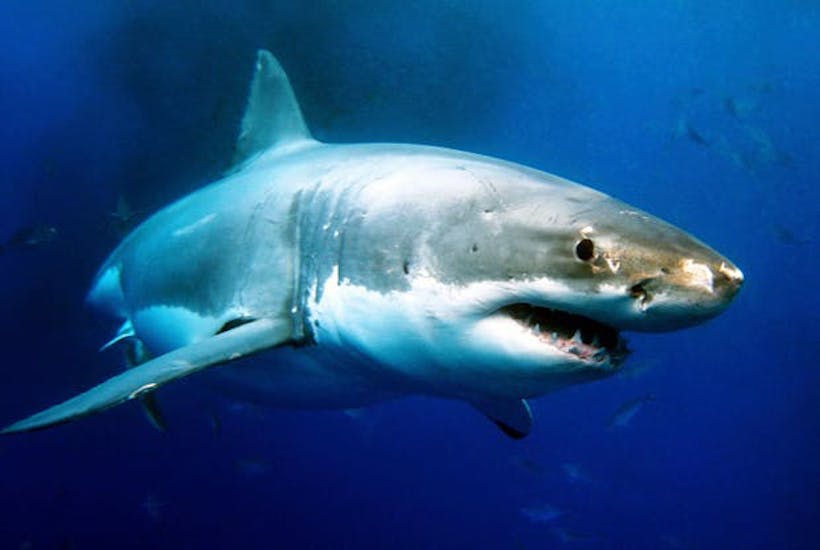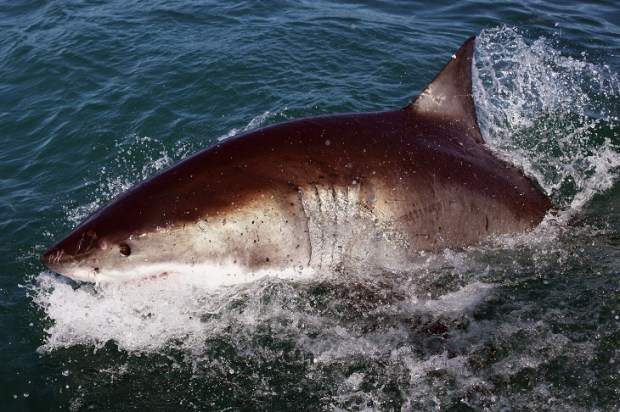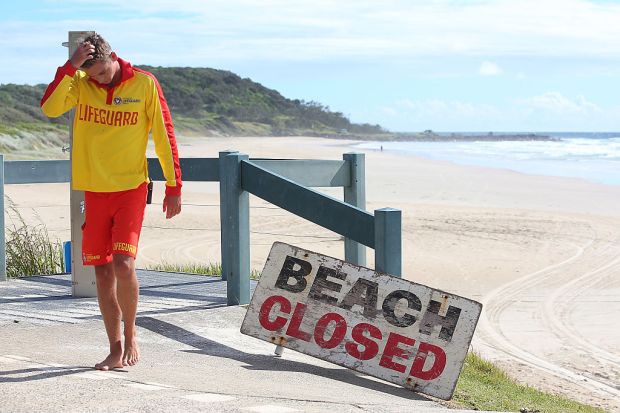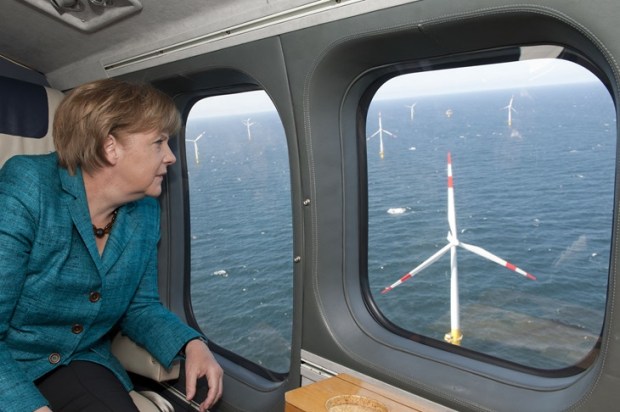The Margaret River Pro — a surfing equivalent of the Australia Open — gets underway today in the magnificent waters of the southwest of Western Australia; waters known as much for their sharks as their waves.
A team of scientists predicts that over the next 45 years, about 1,800 people could fall victim to shark attack in Australia. They propose equipping everyone with a personal shark deterrent device in the hope of saving perhaps a thousand people. The most effective shark deterrent device reduces the risk of attack by about 60%. So, the widespread distribution of this product could be a good investment for a government trying to find an environmentally palatable solution. But, there are problems with the device, which make it too difficult for most surfers to use.
The biggest problem is that the user has to tolerate the occasional electric shock. These random jolts can be painful. Initially, it seemed ridiculous. But, after a while I got used to it, and figured it was a small price to pay for peace of mind. Ironically, using the device actually increased the risk of my being attacked, because I surfed more than twice as often. You tend to find other things to do if the waves are not so good, especially if you are on your own. But, I felt invincible with my Shark Shield and would paddle out in anything. So, my exposure to the risk eventually cancelled out the benefit of using the device.
There are various other problems, which might be solvable since they concern the design of the product. But, the problem of electric shocks is unavoidable, since the user needs to be positioned within the electric field, and the current has to be strong enough to cause a shark to pull away. While most adults would get used to it, I think children would refuse to use the device. Children are actually more vulnerable to shark attack, despite offering less in the way of sustenance, because sharks tend to bite the smaller of two objects presented to them. While most surfers feel safer in a group, because it reduces the odds of being taken, children remain vulnerable on account of being smaller than everyone else.
As winter approaches, surfers look forward to the greater regularity of south swells. But, the arrival of whales soon brings to mind the inevitable influx of large sharks accompanying the migration. How many people’s lives will be ruined this year? Eventually, shark attacks will become so frequent that the government will have little choice but to deploy lethal methods of shark mitigation. It is already beyond a joke. How bad does it have to get?
Having engaged in the shark debate at all levels over the past six years, I have come to the conclusion that the technocrats at the New South Wales Department of Primary Industries are more concerned about sharks than people, and government ministers are powerless to defy them. So, I don’t think we stand a chance unless we can expose the root problem, which is the anti-human agenda of environmentalism. Society is being ruled by an elite class of technocrats who are determined to fix the world. They probably see themselves as saints, when they are really just grandiose narcissists empowered by bureaucracy.
We have been trained for decades to cherish the natural environment. So, it is hard not to think that environmentalism is good. However, there is a genetic defect in their philosophy, which ironically stems from our success as a species. We have evolved to value group membership because living in groups ensured the survival of the species. However, the complexity of living in groups has created a hyper-rational mind, which has lost touch with its own humanity. Caring for nature at the expense of humanity is hyper-rational because it takes for granted the humanity required to feel concerned about nature. A properly grounded mind values the source of its own compassion, which is our humanity.
Environmentalism provides a convenient distraction from the challenges of being human. Looking inward must seem petty compared to controlling society for the benefit of nature. Greenpeace co-founder Patrick Moore echoes this sentiment, suggesting that fear of catastrophic destruction, such as climate change, might actually be fear of death, projected onto the natural world. Eco-warriors identify with a stable ecosystem, as if it mirrors their own psychological stability. That is why they can’t compromise. They probably view the occasional human tragedy as a necessary sacrifice. The sea might even be symbolic of the subconscious mind, making it especially sacrosanct. I am afraid this is where the battle needs to be fought. We need to reject the deification of nature.
Dan Webber blogs at danwebberblog.wordpress.com.
Got something to add? Join the discussion and comment below.
Get 10 issues for just $10
Subscribe to The Spectator Australia today for the next 10 magazine issues, plus full online access, for just $10.


























Comments
Don't miss out
Join the conversation with other Spectator Australia readers. Subscribe to leave a comment.
SUBSCRIBEAlready a subscriber? Log in